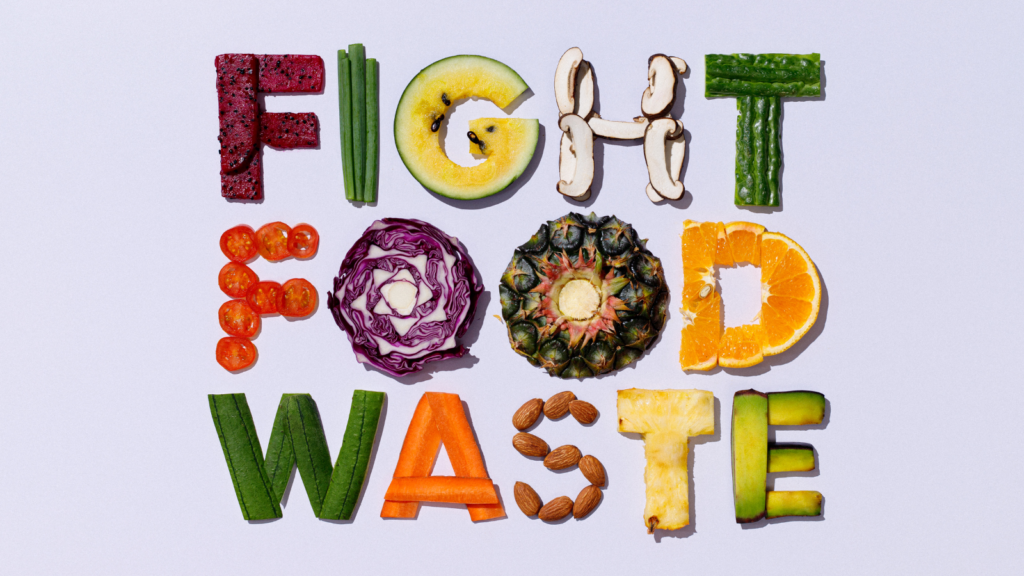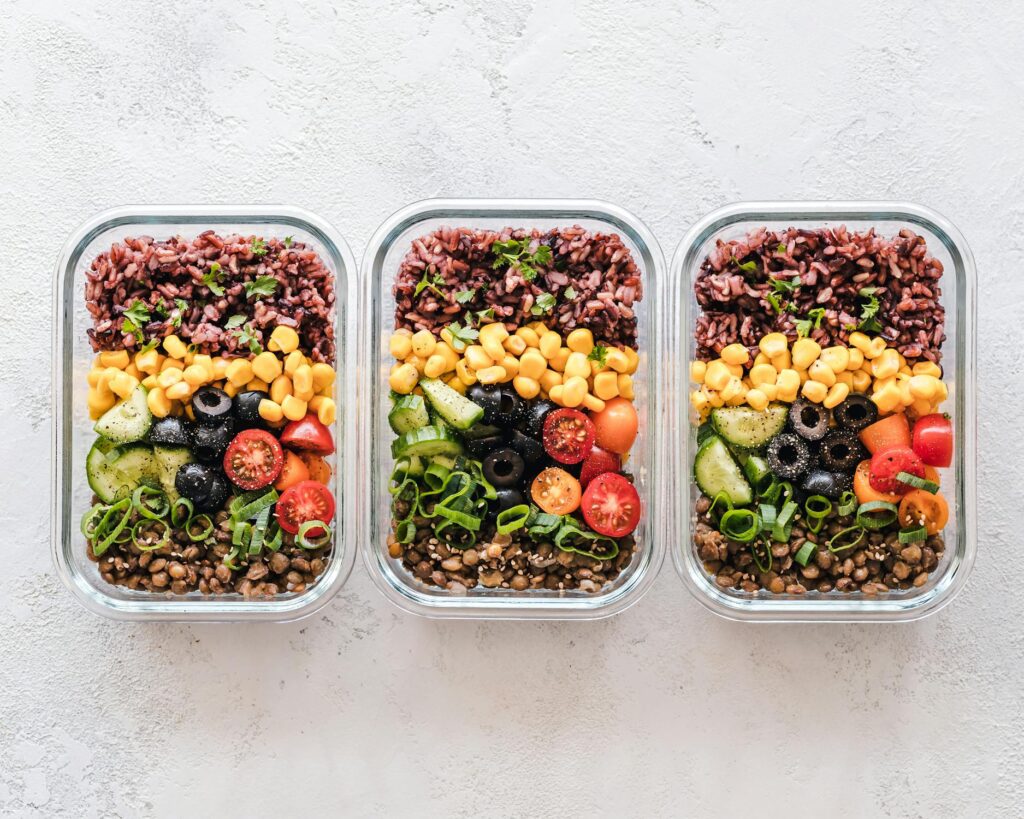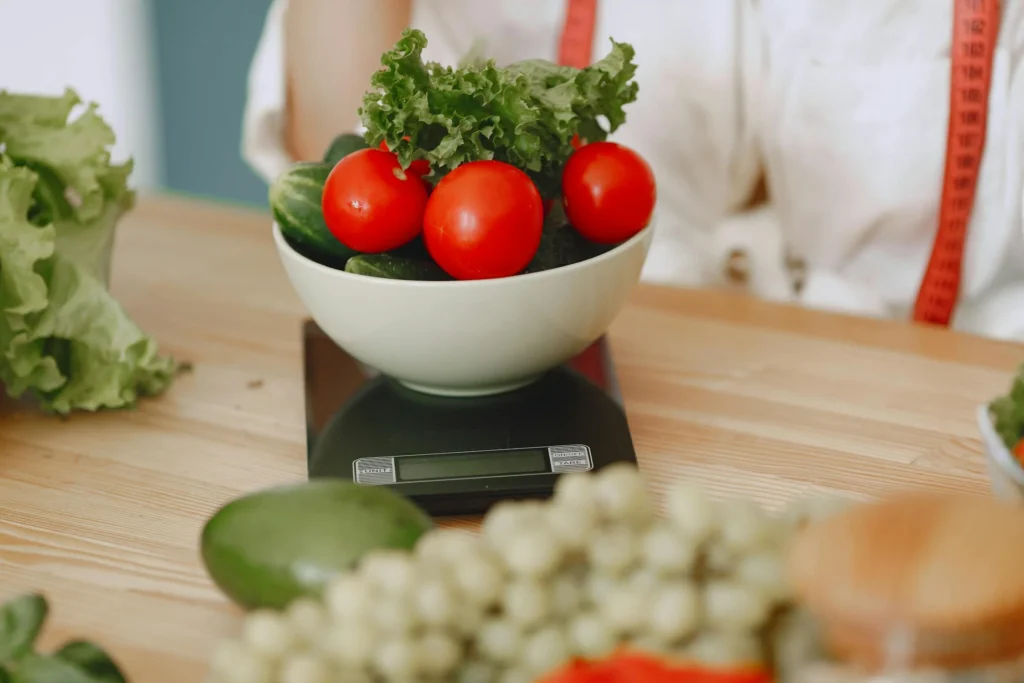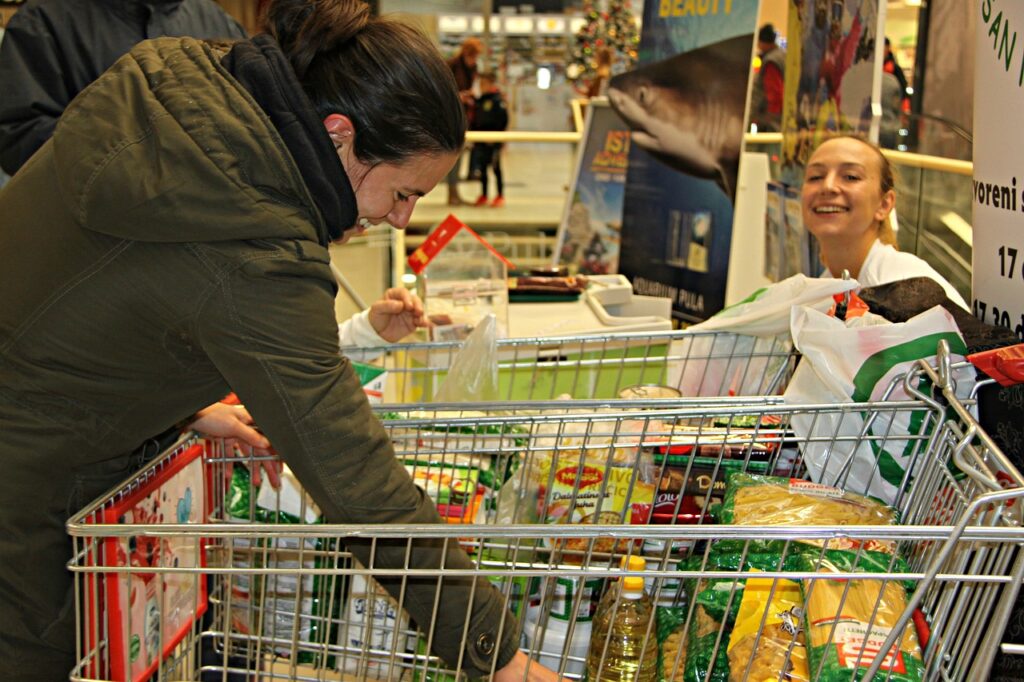Today is Stop Food Waste Day. Each year, it is estimated that 4.5 million tonnes of food that could have been eaten in the UK is wasted from our homes – this is worth around £14 billion. A quarter of the food that is wasted worldwide each year would be enough to feed 795 million people who suffer from hunger. Furthermore, food waste is also a key contributor to climate change as food waste in landfill can cause methane gas. These statistics show just how crucial it is that we take steps to fight for change. Below we have listed small and quick steps that we can all take to make a difference.

1. Plan Meals Mindfully
Mindful meal planning is the first step to reducing food waste. Before going to the supermarket, you should take a note of what items you already have in your cupboard and plan your meals for the week based on this. This will avoid impulse purchases and avoid accidentally buying something you already have. Additionally, you can try to make recipes throughout the week that require some of the same ingredients to further reduce wastage.

2. Enjoy Imperfect Produce
Fruits and vegetable often get overlooked if they have any form of imperfections, despite being perfectly edible. Instead of binning these imperfect items or not purchasing them, incorporate them into your meals. This not only reduces food waste, but it also supports farmers and reduces demand for perfect-looking produce, which therefore promotes a more sustainable food system. Additionally, foods that have gone past their best before date can often be discarded prematurely. If your produce or other food items look and smell fine then they are more than likely okay to consume – or you can get creative, for example for bananas that have gone brown why not turn them into a delicious banana bread?

3. Practice Proper Storage Techniques
Ensuring that you are practicing proper storage techniques is crucial for prolonging the freshness of your food items. There are different types of optimal storage conditions for different types of foods, including fruits, vegetables, dairy products and leftovers that can be easily found online. Airtight containers and reusable storage bags can be great ways to help extend the shelf life of food items and minimize waste.

4. Control your Portion Sizes
When it comes to cooking meals, overestimating portion sizes can lead to an excess of food being cooked and ultimately wasted. By ensuring your portions are measured out based on individual appetites, this reduces the chances of wastage. However, if leftovers are inevitable, you can plan creative ways to re-purpose them into new meals to lower the wastage.

5. Re-purpose your Leftovers
Using your leftovers or food scraps to create new meals is a fantastic, cheap and easy way to ensure you are reducing your food wastage. For example, instead of throwing away vegetable peels, bones or stale bread why not consider using them to make homemade stocks, broths or croutons? This can reduce food waste, add nutritional flavour to your next meal and also save you money.

6. Support Food Recovery Initiatives
Supporting local food banks and shelters is a great way to reduce food waste whilst also distributing to those in need. Supermarkets and other businesses also participate in food donation programs to redirect edible but food that cannot be sold to charitable organizations. By supporting these types of initiatives, you can help combat hunger whilst also reducing food waste.

Stop Food Waste Day is a powerful reminder of the responsibility we all share to combat food wastage. By implementing these small yet powerful changes into our daily lives we can all make a difference and create a more sustainable food system.
